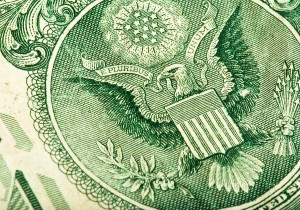The Federal Reserve announced Friday that its balance sheet soared to $4 trillion by the end of last year. In efforts to revive the United States economy, the nation’s central bank made immense asset acquisitions of $1.1 trillion as part of its monthly $85 billion quantitative easing measures.
According to its statement, the non-profit central bank paid the Treasury Department $79.6 billion in net profit – it is required by law to allocate any profits to the federal government. Last year’s payment was lower than 2012’s record of $88.4 billion. The Fed notes that it did not make any gains on last year’s sales of U.S. Treasury securities, but it did garner $13.3 billion in the previous year.

The Fed decreased its January and February bond-buying initiative by $10 billion. This means now that the central bank’s monthly asset purchases have been reduced to $65 billion. However, many financial experts expect the Federal Open Market Committee (FOMC) to decide on whether or not it should make another $10 billion cut during its next policy meeting sometime this week. It would then make it $55 billion each month.
All eyes will be on new Fed Chair Janet Yellen, who will chair her first FOMC meeting since helming the century-old central bank. It will also come as the markets keep their eyes on the crisis in Ukraine, where Crimeans recently voted overwhelmingly in favor of seceding and joining Russia.
“This is all about her. It’s her first meeting. It just doesn’t seem like the meeting where there’s going to be a lot of policy fireworks given it might be prudent to let things coast through again, while they all get on the same page,” said George Goncalves, Treasury strategist at Nomura Americas, in an interview with CNBC.
It is also widely believed that the Fed will revise its initial policy direction that would lead to interest rate hikes if the unemployment rate dipped below 6.5 percent. Many within the Fed and in the market think that target is both outdated and confusing since the jobless rate is now at 6.7 percent.
During the meeting, the Fed will publish new economic forecasts and will likely include discussions on the weather and its effects on the economy this winter.
Despite the rumors circulation, Yellen has been very clear that she is no different than her predecessor: near-zero interest rates are still needed in this vulnerable economy. She has also made it certain that she is determined to help create jobs.
Peter Schiff, president of Euro Pacific Capital, recently stated in an interview with the Epoch Times that it doesn’t really matter what the Fed does because the U.S. economy is “a disaster” and “screwed up.”
“The U.S. economy is really all screwed up. It’s the result of mainly monetary policy, but fiscal and regulatory policies are part of the problem,” said Schiff. “I think the major part of the problem is the central bank. The central bank is basically trying to accommodate bad fiscal policy, bad regulatory policy. They are trying to provide a stimulus to the economy to negate the sedative that is being applied by the government. But it’s actually making the problem worse.”




